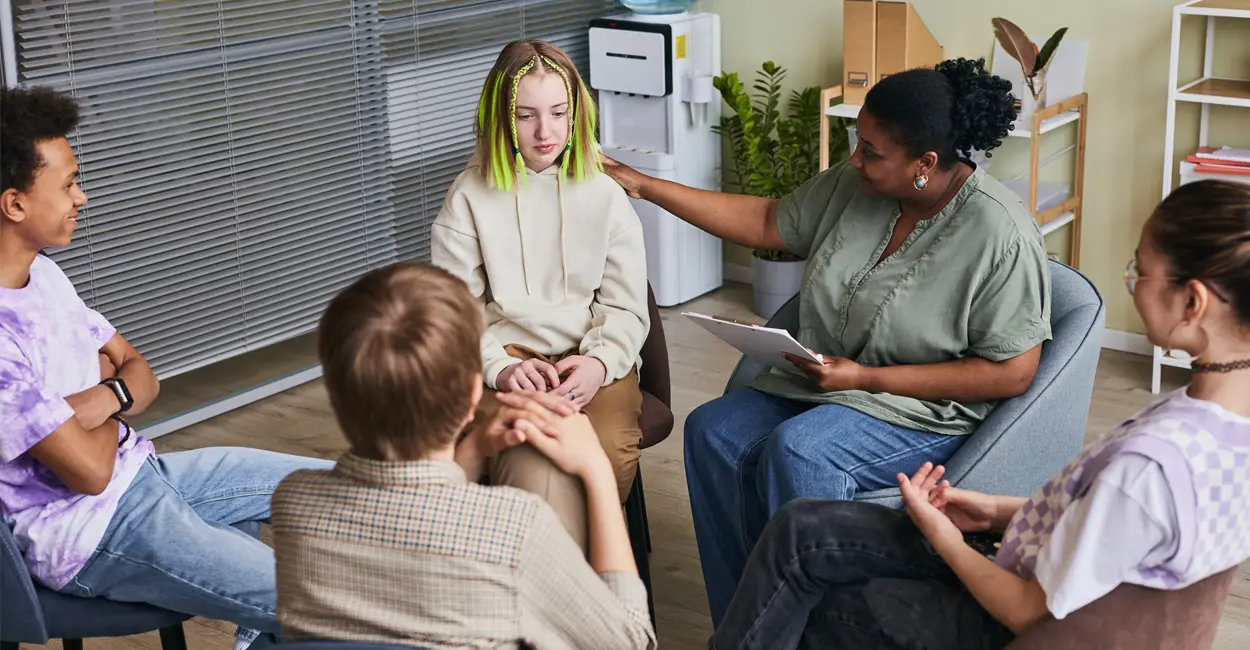24/7 Helpline:
(866) 899-221924/7 Helpline:
(866) 899-2219
Learn more about Klonopin Rehab centers in San Joaquin County
Klonopin Rehab in Other Counties
Other Categories in San Joaquin County

Other Insurance Options

Medical Mutual of Ohio

Lucent

Private insurance

Anthem
Beacon

Regence

Premera

Highmark

MVP Healthcare

Holman Group

Ceridian

Meritain

Horizon Healthcare Service

MHNNet Behavioral Health

Choice Care Network

WellCare Health Plans

UMR

Amerigroup

Group Health Incorporated

BHS | Behavioral Health Systems

Native Directions – Three Rivers Indian Lodge
Native Directions — Three Rivers Indian Lodge is a drug and alcohol rehab located in Manteca, Califo...

Valley Community Counseling Services – VCCS
Valley Community Counseling Services (VCCS) provides behavioral health services for individuals, fam...

Valley Community Counseling Services – VCCS
Valley Community Counseling Services (VCCS) provides behavioral health services for individuals, fam...

Aegis Treatment Centers – Healthy Connections
Aegis Treatment Centers – Healthy Connections is a drug and alcohol rehab located in Lodi, Californi...

Valley Community Counseling Services – VCCS
Valley Community Counseling Services (VCCS) provides behavioral health services for individuals, fam...

Valley Sober Living
Valley Sober Living is a Sober Living facility for those individuals that are in the early stages of...

Ken Seeley Communities
Ken Seeley Communities is a drug and alcohol rehab in Acampo, California. They provide residential t...

Life Work Outreach Services
Life Work Outreach Services is a private rehab located in Woodbridge, Virginia. Life Work Outreach S...

Prince William County Behavioral Health
Prince William County Behavioral Health is a public rehab located in Woodbridge, Virginia. Prince Wi...

SaVida Health
SaVida Health, formerly Experience Wellness Centers, is a private healthcare practice located in Woo...














































































AA – Alcoholics Anonymous – South Sacramento Street
AA – Alcoholics Anonymous – South Sacramento Street is a non-profit rehab located in Lodi, Californi...

Fresh Beginning
Fresh Beginning is a private rehab located in Tracy, California. Fresh Beginning specializes in the ...

Bright House
Bright House is a private rehab located in French Camp, California. Bright House specializes in the ...

Breaking the Chains Counseling
Breaking the Chains Counseling is a private rehab located in Lodi, California. Breaking the Chains C...

AA – Alcoholics Anonymous
AA – Alcoholics Anonymous is a non-profit rehab located in Manteca, California. AA – Alcoholics Anon...

the PASS method
the PASS method is a private rehab located in Manteca, California. the PASS method specializes in th...

AA – Alcoholics Anonymous – East Pine
AA – Alcoholics Anonymous – East Pine is a non-profit rehab located in Lodi, California. AA – Alcoho...

RAMAS Counseling Center
RAMAS Counseling Center is a private rehab located in Woodbridge, New Jersey. RAMAS Counseling Cente...

L and S Recovery Institute
L and S Recovery Institute is a private rehab located in Woodbridge, New Jersey. L and S Recovery In...

Washington Behavioral Health
Washington Behavioral Health is a private rehab located in Woodbridge, Virginia. Washington Behavior...

Woodbridge Therapy Group
Woodbridge Therapy Group is a private rehab located in Woodbridge, Virginia. Woodbridge Therapy Grou...

Addiction Care and Treatment
Addiction Care and Treatment Center is located in Woodbridge, Virginia. Addiction Care and Treatment...






























































































































































